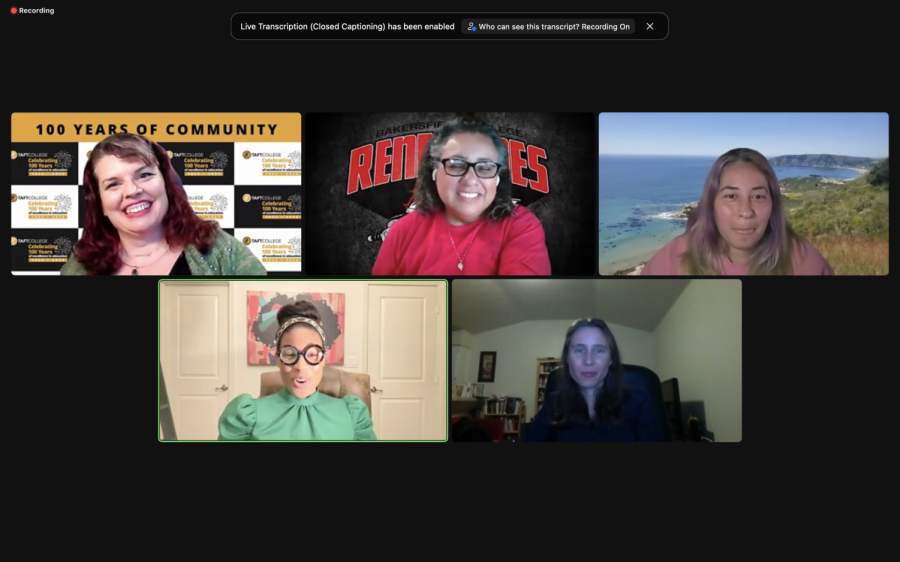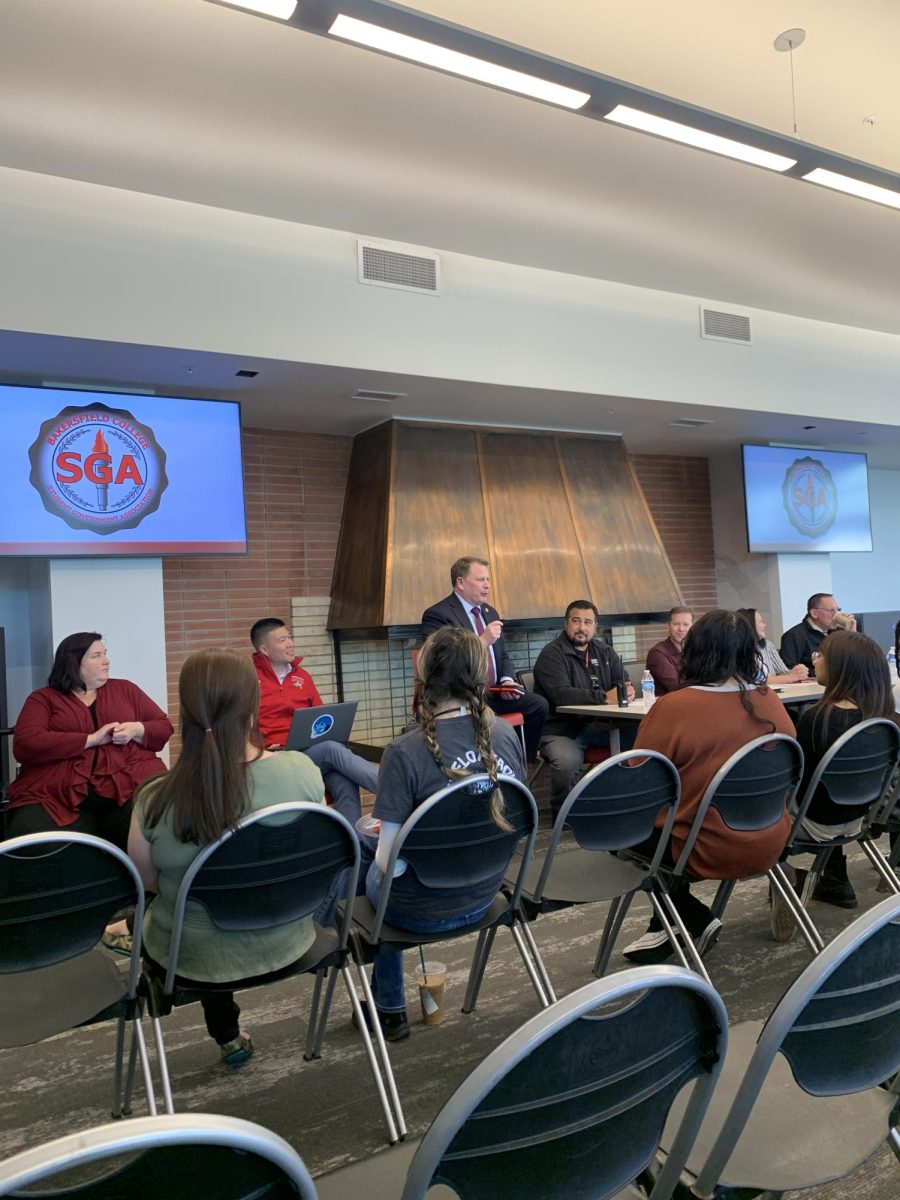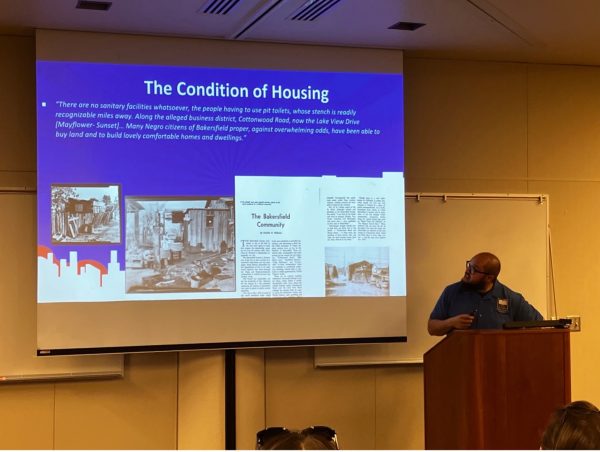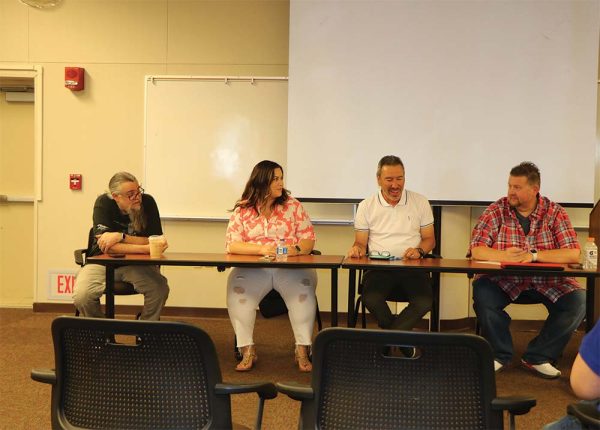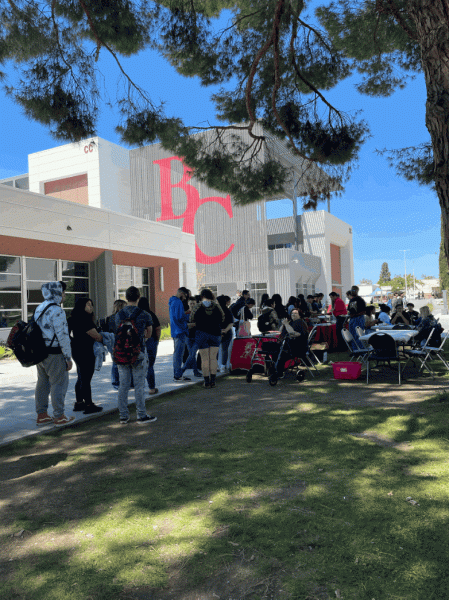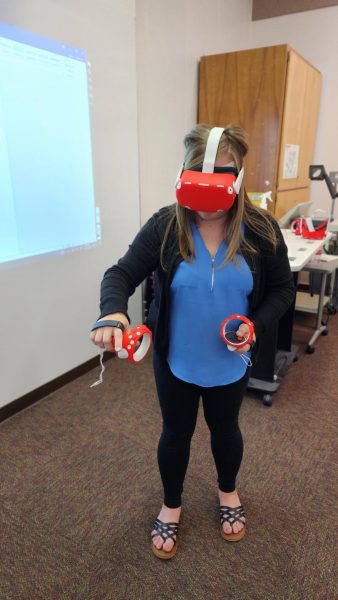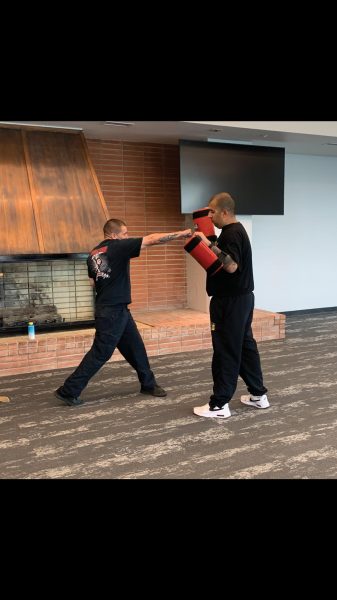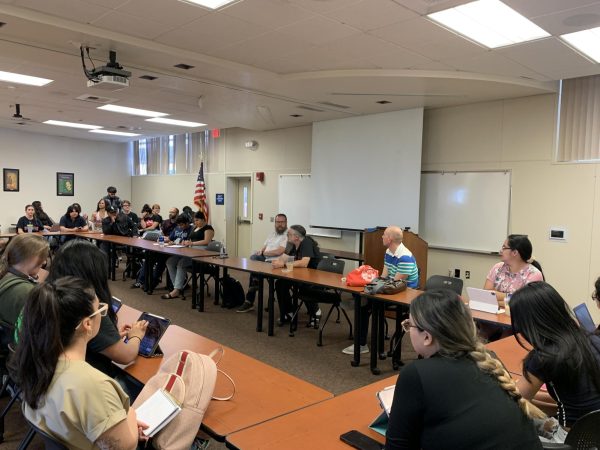Discussing alliance and power
Panel speakers (from left to right) Michelle Oja, Tina Mendoza, Erica Menchaca, Jessica Grimes, and Jennifer Grohol, discussing the alliance and power of women.
March 22, 2022
Professor Tina Mendoza, who teaches history at both Bakersfield College and Taft College, formed a discussion group with other faculty members, Taft College psychology professor Michelle Oja, Erica Menchaca, who has a doctorate in organizational leadership in the university of Laverne, professor of English at Taft College Jessica Grimes, and Bakersfield College history professor Jennifer Grohol. They all got together on March 17 for a panel discussion about alliance and power within a time of adversity.
Starting off the discussion, Mendoza stated, “My thought for this panel is to discuss how to support each other, not just as women, but as women of color, and also how do we support other groups without forcing our ideas, and our own opinions within those groups, and how do we become an ally and support different organizations.”
Mendoza also mentioned that the panel that she had formed together for the topic are very diverse through their theories and thoughts.
Grohol, a historian at Bakersfield, presented a video that showed an example of a situation of what happens when women and men speak in groups together. The video showed the current Vice President of the United States Kamala Harris speaking and suddenly being interrupted and overshadowed by a man.
“So many studies have shown that when women and men are speaking in groups together, women speak far less, and when women do speak, their ideas are often ignored or attributed later to men.” She stated that this issue often occurs because often “women will self-regulate, and women don’t want to come off as being too talkative or too pushy. While men, if they start speaking louder or faster, it’s perceived as assertive.”
“One way that we can work to combat that is through mentorship. It’s very important that women see themselves in the workforce, and they see themselves, or they have a network of people that they can go to advocate for them,” she said.
The panel included other important points surrounding their discussion. Through insightful questions that were asked by the audience watching the panel, the panelists mentioned how important and impactful it is to find a mentor as a student.
Grohol stated, “People want to give advice to young students, and help ambitious ‘up and comers’, so I really recommend making the connections now.”


